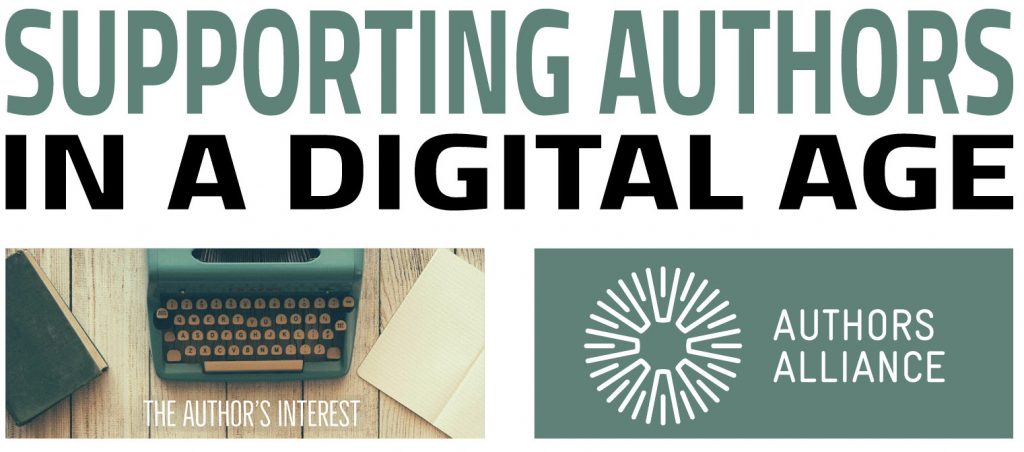Last week, Authors Alliance participated in the thirty-ninth session of the World Intellectual Property (WIPO) Standing Committee on Copyright and Related Rights (SCCR/39) in Geneva. Among other topics, the Committee addressed copyright limitations and exceptions for libraries and archives and for educational and research institutions. Authors Alliance presented a statement to the Committee on how limitations and exceptions can benefit authors.
Authors Alliance was pleased to partner with Rebecca Giblin of the Author’s Interest Project to host a side panel at the SCCR/39, “Supporting Authors in a Digital Age.”

Giblin shared preliminary results from a study of more than 50 years of publishing contracts from the archive of the Australian Society of Authors. The research revealed that publication contracts are often insufficient to protect authors’ interests. For example, 14% of the contracts examined by Giblin and her colleague Joshua Yuvaraj did not include out-of-print rights, and only 6% of contracts used objective criteria (such as sales or revenue numbers) to define out-of-print status.
Giblin described how reversion rights give authors fresh opportunities to financially benefit from their works, open up new investment opportunities for publishers, and promote ongoing availability to the public. Giblin explained that their research suggests that there is a need to investigate minimum reversion rights addressing books that have reached the end of their commercial life, uses that are not being exploited, situations where publishers go into liquidation, and term limits akin to US termination of transfer laws.
Brianna Schofield discussed how reverting rights can help authors to reach more readers, continue to contribute to scholarly and cultural discourse, and ensure that their works’ continuing impact and relevance are not limited by their commercial lives. She shared examples of authors who have regained rights and subsequently released their books on open terms, self-published their works, and placed their books with a new publisher. Schofield explained that, because of the tremendous benefits of reversion for authors and the public, Authors Alliance supports statutory termination rights for authors, as well as strengthening provisions governing reversion rights in publication contracts.
Discover more from Authors Alliance
Subscribe to get the latest posts sent to your email.
